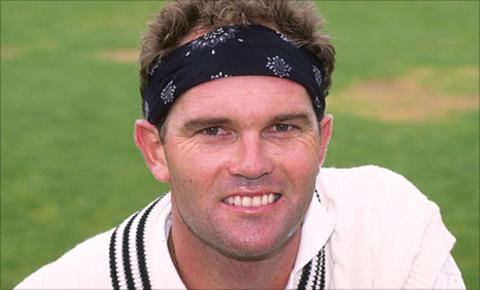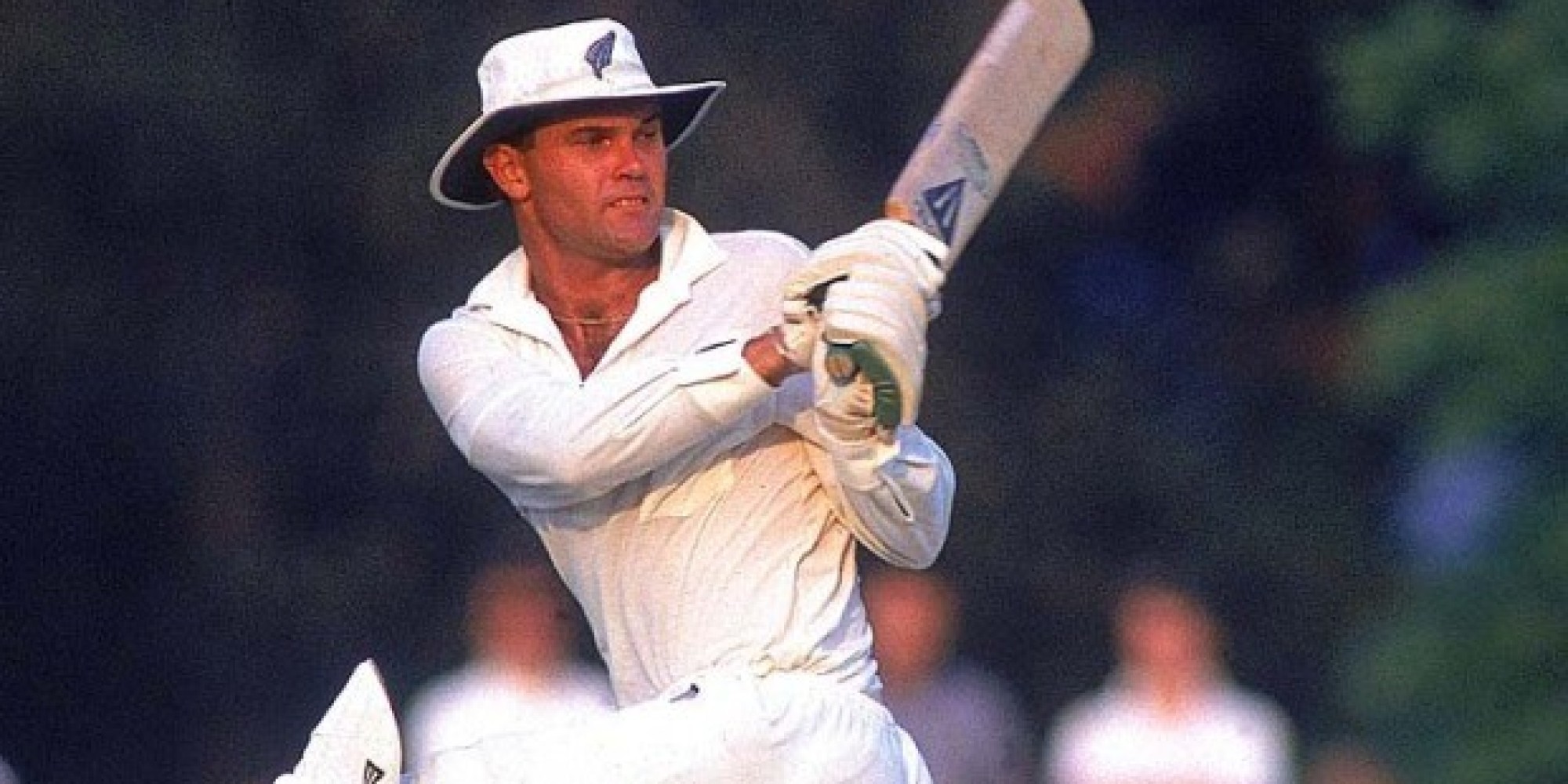When Martin Crowe unfurled batting mastery honed on Auckland’s fertile cricketing terraces, an artist met engineer – technique and tactics coalescing over 13,000 international runs spanning 188 matches.
Behind the mountain of statistics swelled storied innings – career-defining marathons against unrelenting attacks echoing previous wars of attrition and maneuvers equally strategic.
Yet beyond the numbers and nostalgic innings glows deeper legacy – Cricket Max innovator revolutionizing limited overs dexterity before analytics erudition modernized evaluation metrics as selector.
Tirelessly progressive even during illness, Crowe upheld accountability and innovation with equal vigor – the very principles guiding his graceful rise now channeling administrative foresight protecting cricket’s future.
Article Highlights
Hide- Martin Crowe was born on September 22, 1962, in Henderson, New Zealand, and showed early promise in cricket as a teenager.
- He had a successful international career, making his debut in 1982 and captaining the New Zealand cricket team from 1990 to 1993.
- Crowe set a record for the highest individual score by a New Zealand batsman in Tests with 299 runs and led New Zealand to their first-ever World Cup semifinal in 1992.
- He was known for his elegant and stylish batting technique, strong mental approach, and ability to dominate bowlers, particularly against spin bowling.
Now years passed since final stanzas of a career crystallized locally then globally, Martin Crowe remains entwined with New Zealand cricket’s ascendant identity – a relentless run accumulator on-field transforming scoring potentialities off it through a visionary desire to expand what cricket permits when conventional views only limit. His name persists an emblem of ambitious innovation.
Early Life and Beginnings
Martin Crowe, one of New Zealand’s cricketing luminaries, was born in Henderson, Auckland, on September 22, 1962, to a family where the game was a cherished pursuit, laying the foundation for a distinguished career in the sport.
The genesis of Crowe’s cricketing journey bore the hallmark of a quintessential sports lineage, with his father, Dave Crowe, having played first-class cricket for Canterbury, and his elder brother, Jeff Crowe, also carving out a significant presence in the international cricketing arena.
Mohammad Yousuf
When Mohammad Yousuf caressed deliveries through covers batlike paintbrush in hand, crowds ... Read More
In the familial embrace of cricket, young Martin’s affinity for the sport was catalyzed, and his emerging talent soon became evident.
He honed his skills at Auckland Grammar School, a breeding ground for cricketing prowess, where his precocious technique and strategic acumen were rapidly distilled.
His early forays into competitive cricket were marked by an unyielding dedication to mastering the technical nuances of batting and an innate understanding of the game’s tactical dimensions.
This formative period was not merely a prelude but a crucible in which Crowe’s cricketing ethos was forged. His adolescence was punctuated by a relentless pursuit of excellence, as he navigated through age-group cricket to ultimately make his first-class debut for Auckland at the tender age of 17.
This significant milestone heralded the advent of a prodigious talent on the precipice of an illustrious international career that would indelibly imprint his name in the annals of cricket history.
Martin Crowe: Domestic Cricket Exploits
Building upon his formative years and a promising initiation into first-class cricket, Crowe’s domestic career burgeoned as he became a mainstay in Auckland’s batting lineup, swiftly amassing runs and carving out a reputation as a technically adept and strategically astute batsman.
His proficiency with the bat was underscored by his voracious appetite for runs, which was reflected in his compelling average and the frequency with which he anchored innings.
Crowe’s ability to construct innings of substance was not merely a byproduct of talent but a testament to his rigorous work ethic and deep understanding of the game’s intricacies.
Analyzing his domestic cricket exploits reveals a pattern of consistent performance. Crowe’s technique was characterized by an unflappable temperament and an uncanny ability to read bowlers’ plans, adapting his play to various conditions and match situations.
His shot selection, underpinned by an economy of movement, allowed him to accumulate runs with a blend of grace and efficiency. This proficiency was particularly evident in his adept handling of spin, where his footwork was both precise and decisive.
Crowe’s domestic career not only provided the bedrock for his international exploits but also inspired a generation of cricketers. His legacy in the domestic circuit is indelibly etched in the annals of New Zealand cricket, serving as a beacon for aspirants who seek to emulate his blend of technical prowess and mental fortitude.
International Career Highlights
Transitioning to the international stage, Crowe’s cricketing prowess was soon evident as he consistently delivered performances that solidified his status as one of New Zealand’s premier batsmen.
His international career, spread over nearly two decades, was marked by numerous accolades and milestones that underscore his mastery with the bat.
An analytical dissection of Crowe’s career highlights begins with his first Test century against England in 1983, which set the tone for a series of substantial contributions to the New Zealand team.
His appetite for runs was matched by an astute cricketing brain, leading to a captaincy characterized by innovative strategies and a proactive leadership style.
Under his stewardship, New Zealand reached the semi-finals of the 1992 Cricket World Cup, with Crowe’s own performances earning him the Player of the Tournament accolade.
Statistically, Crowe’s record is impressive; he amassed 5,444 Test runs at an average of 45.36, with 17 centuries to his name. His One Day International (ODI) figures also reflect his prowess, scoring 4,704 runs at an average of 38.55.
Crowe’s highest Test score of 299 against Sri Lanka in 1991 stood as a New Zealand record for years, illustrating his capacity for monumental innings and his enduring legacy in the annals of cricketing history.
Martin Crowe: Signature Batting Achievements
Crowe’s signature batting achievements are exemplified by his record-breaking innings and innovative stroke play, which left an indelible mark on international cricket.
Notably, he became the youngest player to score a double century for New Zealand, showcasing his precocious talent. His ability to dominate bowling attacks, regardless of their caliber, was a testament to his technical prowess and mental fortitude.
A meticulous planner and executor, Crowe’s analytical approach often translated into strategic field placements and the exploitation of bowlers’ weaknesses.
He was equally adept at both front-foot and back-foot play, manipulating the field with deft glances and powerful drives. In 1991, he crafted a monumental 299 against Sri Lanka, which stood as New Zealand’s highest Test score for over two decades, underlining his status as a batting colossus.
Crowe’s innovative spirit manifested in the 1992 World Cup, where he introduced a paradigm-shifting approach to one-day batting. He capitalized on the field restrictions during the initial overs, thereby redefining the role of an opener in limited-overs cricket.
His legacy is not solely quantified by the runs scored but also by the progressive batting ideology he instilled, inspiring a generation of cricketers to transcend conventional boundaries.
Post-Retirement Contributions
While Martin Crowe’s on-field achievements etched his name in the annals of cricket history, his contributions to the sport extended significantly beyond his retirement, influencing the game’s development and nurturing future talent.
Crowe’s post-retirement period was marked by a transition from athlete to mentor, commentator, and thoughtful critic of the game.
His astute analysis in various media platforms provided insights that were both instructive and liberating for a cricketing audience seeking deeper understanding.
As a commentator, Crowe’s articulation of the game’s nuances and strategies enriched the viewing experience, offering a masterclass to enthusiasts and players alike. His willingness to critique and offer constructive feedback demonstrated a commitment to the sport’s evolution.
In mentoring roles, he shared his technical expertise and mental approach with emerging cricketers, fostering their growth and advocating for their well-being within the sport.
Crowe’s foresight led to innovative thinking, such as advocating for the T20 format long before its global proliferation, showcasing his visionary approach to cricket’s future.
His legacy, therefore, is not confined to the records he set or the matches he won but is also embedded in the progressive changes he championed within the cricket community.
Summary
In conclusion, Martin Crowe’s cricketing legacy is characterized by his significant contributions to both domestic and international cricket. His technical proficiency and strategic acumen were evident throughout his career.
Following retirement, Crowe’s influence extended beyond the boundary as a commentator and mentor, impacting the sport’s evolution.
His enduring legacy is marked by his statistical achievements, innovative approach, and dedication to cricket, solidifying his status as one of New Zealand’s most esteemed cricketers.

















